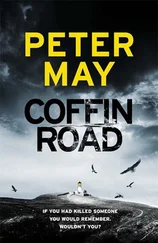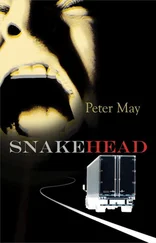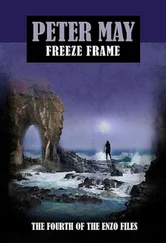Gus am bris an latha agus an teich na sgàilean
Until the day breaks and the shadows flee away
Song of Solomon 4:6
(often used in Gaelic obituaries)
It is evident from the way the stones are set into the slope of the hill that industrious hands once toiled to make this pathway. It is overgrown now, the shallow impression of a ditch on one side. He makes his way carefully down towards the remains of the village, pursued by the oddest sense of treading in his own footsteps. And yet he has never been here.
The silhouette of a broken-down drystone wall runs along the contour of the treeless hill above him. Beyond it, he knows, a crescent of silver sand curls away towards the cemetery and the standing stones on the rise. Below him, the footings of blackhouses are barely visible among the peaty soil and the spikes of tall grasses that bend and bow in the wind. The last evidence of walls that once sheltered the families who lived and died here.
He follows the path between them, down towards the shingle shore where a ragged line of roughly hewn stones vanishes into waves that cast their spume upon the pebbles, frothing and spitting. They are all that remain of some long-forgotten attempt to build a jetty.
There were, perhaps, ten or twelve blackhouses here once. Thatched roofs curved over thick stone walls, leaking peat smoke through cracks and crevices to be whipped away on the icy edge of winter gales. In the heart of the village, he stops and pictures the spot where old Calum lay bleeding, his skull split open, all of his years and heroism erased by a single blow. He crouches down to touch the earth, and in doing so feels a direct connection with history, communing with ghosts, a ghost himself haunting his own past. And yet not his past.
He closes his eyes and imagines how it was, how it felt, knowing that this is where it all began, in another age, in someone else’s life.
The front door of the summerhouse opened straight into the living room through a fly-screen door off the porch. It was a large room occupying most of the downstairs footprint of a house that the murdered man used for guests who never came.
A narrow corridor at the bottom of the staircase ran off to a bathroom and a small bedroom at the back of the property. There was an open fireplace with a stone surround. The furniture was dark and heavy, and took up most of the floor space. Sime thought that although the house itself had been remodelled, this must still be the original furniture. It felt like stepping back in time. Generous old armchairs with antimacassars, worn rugs strewn across uneven but freshly varnished floorboards. Heavy-framed oil paintings on the walls, and every available space cluttered with ornaments and framed family photos. It even smelled old in here, and made him think of his grandmother’s house in Scotstown.
Blanc fed cable off into the back bedroom where he would set up his monitors, and Sime lined up two cameras on tripods to focus on the armchair facing the window, where the newly widowed woman would be well lit. He set his own chair with its back to the window so that his face would be obscured to her, but every micro sign to flit across her face would be evident to him.
He heard floorboards creaking overhead and turned towards the staircase as a policewoman came down into the light. She looked bewildered. ‘What’s going on?’
Sime told her they were setting up for the interview. ‘I understand she’s upstairs,’ he said. The officer nodded. ‘Send her down, then.’
He stood by the window for a moment, holding the net curtain aside, and remembered the words of the sergeant enquêteur who had met them at the island’s only harbour. Looks like it was her that did it . Sunlight caught his face so that it was reflected in the glass, and he saw his familiar lean features beneath their tumble of thick blonde curls. He saw the fatigue in his eyes, and the shadows that hollowed his cheeks, and he immediately jumped focus to gaze out across the ocean. The longer grass along the cliff’s edge was dipping and diving in the wind now, white-tops blowing across the gulf from the south-west, and in the distance he saw an ominous bank of dark cloud bubbling up on the horizon.
The creak of the stairs brought his head around, and for a moment that seemed like an eternity his world stopped.
She stood on the bottom step, her dark hair drawn back from the delicate structure of her face. Pale skin stained by dried blood. Her bloodied nightdress was partially covered by a blanket draped around her shoulders. He could see that she was tall and holding herself erect as if it were a matter of pride not to be cowed by her circumstance.
Her eyes were a dark, crystal-cut blue with darker rings around the pupils. Sad eyes filled with tragedy. He could see the shadows of sleeplessness smudged beneath them as if someone had drawn charcoal-stained thumbs across the skin.
He heard the slow tick, tick of an old pendulum clock on the mantel, and saw motes of dust suspended in the light that slanted through the windows. He saw her lips move, but there was no sound. They moved again in silence, forming words he couldn’t hear, until he became aware suddenly of the irritation in her voice. ‘Hello? Is there anyone home?’ And it was as if someone had released the pause button and his world wound back up to speed. But the confusion remained.
He said, ‘I’m sorry. You are...?’
He saw her consternation now. ‘Kirsty Cowell. They said you wanted to interview me.’
And out of his turmoil he heard himself saying, ‘I know you.’
She frowned. ‘I don’t think so.’
But he knew he did. Not where, or how, or when. But with an absolute certainty. And that feeling he had experienced on the plane returned to almost overwhelm him.
Hard to believe that just a few hours ago he had been lying in his own bed over a thousand kilometres away in Montreal, arms and legs tangled among the sheets, sweating where they covered him, freezing where they did not. His eyes then had been filled with sand, and his throat so dry he could barely swallow.
During the long night he had lost count of the number of times he had glanced at the digital display on his bedside clock. It was foolish, he knew. When sleep would not come, time crawled with the unerring pace of a giant tortoise. Watching its painful passage only increased the frustration and reduced the odds of sleep even further. The faintest of headaches lay just behind his eyes as it did every night, increasing in its intensity towards morning and the painkiller that would fizz furiously in his glass when it was time at last to rise.
Rolling over on to his right side he had felt the empty space beside him like a rebuke. A constant reminder of failure. A cold emptiness where once there had been warmth. He could have spread himself across the bed, warming it from the heat of his own body, but he felt trapped on the side where he had so often lain in simmering silence after one of their fights. Fights, it had always seemed to him, that he never started. And yet through all the sleepless hours of these last weeks, he had begun to doubt even that. Harsh words endlessly replayed to fill the slow, dark passing of time.
Finally, at the very moment he had felt himself slipping off into darkness, the trilling of his cellphone on the bedside table had startled him awake. Had he really drifted off? He sat bolt upright and glanced at the clock, his heart pounding, but it was still just a little after three. He fumbled for the light switch, and blinking in the sudden glare of the lamp grabbed the phone.
Читать дальше












